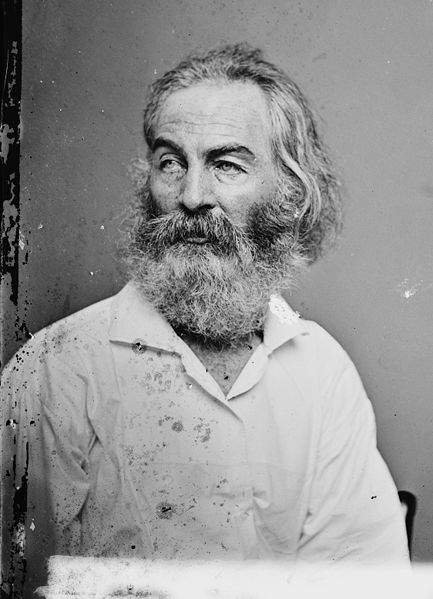Back on the Whitman trail, I believe it's particularly notable how genius interacts with genius and the passionate ambivalence that D.H. Lawrence contends with Whitman's poetry can be revealing. As noted in the previous blog of June 7, Lawrence seems to fall in and out of love with Whitman. Yet Whitman's vision nevertheless seems to pass through the rapids of Lawrence's criticism despite ourselves. So that after Lawrence calls him "fat", I immediately hear a retort reverberating in my head in a line from Whitman's "Song of Myself":
And counseled with doctors and calculated close and found no sweeter fat than sticks to my own bones.
Here in our time, I expect we're more likely to find it far sweeter when the fat sticks to the ribs of our rivals than ourselves. But it's the level of acceptance, in ourselves and in others, that we may long to feel. But Lawrence has a validate argument against Whitman's concept of sympathetic merging. As we look into “Song of Myself”, and come across certain lines, such as the following, I expect we’re likely to chaff, like Lawrence, at Whitman’s assertion of sympathy:
I do not ask the wounded person how he feels….I myself become the wounded person,
While we might come across a wounded person and feel sympathy and offer aid, like the Biblical Good Samaritan, do we actually become the wounded person? Like Lawrence, as I expect most of us in this age, we’d balk at the notion. But let’s return to Lawrence’s criticism of Whitman:
But in merging you must merge away from something, as well as towards something, and in sympathy you must depart from one point to arrive at another. Whitman lays down this law of sympathy as the one law, the direction of merging as the one direction. Which is obviously wrong. Why not a right-about-turn? Why not turn slap back to the point from which you started to merge? Why not that direction, the reverse of merging, back to the single and overweening self? Why not, instead of endless dilation of sympathy, the retraction into isolation and pride?
Note that Lawrence imaginatively creates a continuum to make his point. While there’s no denying our individual identities, neither can we deny our collective identities nor our collective nature in general. At times we might be completely selfish, in order to survive, for example; yet at other times we might be capable of complete sacrifice, such as throwing one’s self on a grenade to protect his or her comrades. Keeping in mind this continuum, the question is where does our day to day consciousness fall on the spectrum.














No comments:
Post a Comment